Interview with a Professional Go Player — Alexander Dinerstein
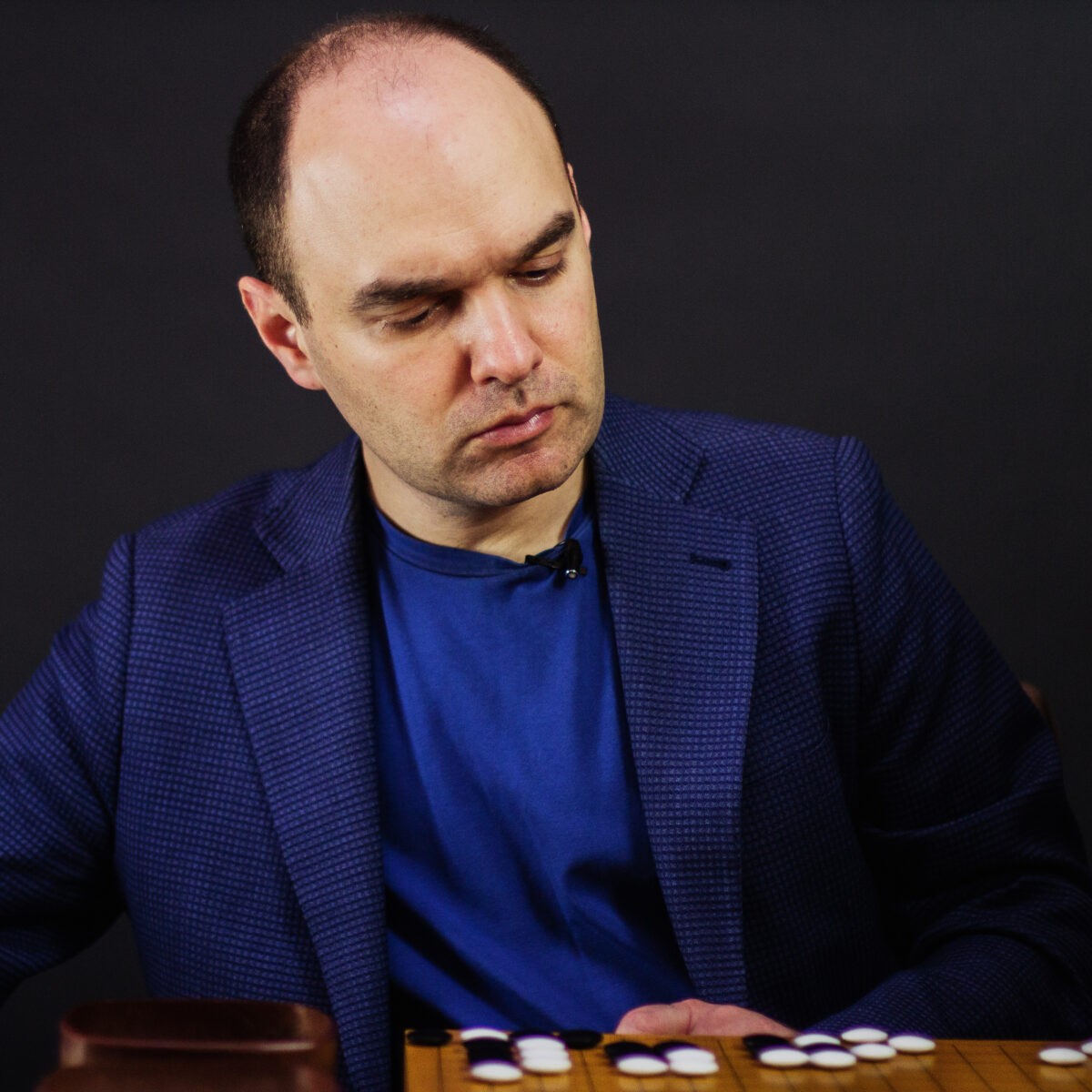
In the spring of 2021 we filmed two interviews with Alexander: “15 Simple Questions to a Go Professional” (for those who don’t know anything about Go) and “15 Nerdy Questions to a Go Professional” (for those who already play Go). Our subscribers sent many of the questions and we picked the best ones.
Enjoy the interviews!
Part 1. Simple Questions to a Go Professional
My name is Alexander Dinerstein. I am a seven-time European champion in the game of Go. A 3 dan professional of the Korean Go Federation. I still play in tournaments and currently spend most of my time teaching and popularizing the game of Go in our country.
What is Go?
For me, Go is the most interesting, most exciting board game in the world.
What’s special about this game?
I believe that the main beauty of Go game is that this game is not about destruction, not about killing your opponent. That is, if in chess or checkers your task is to destroy the opponent’s army, kill the main piece, kill the king, in Go you can win by playing peacefully, it is more like business, more like politics. Divide neatly, take a little more, everyone wins. That is, someone created a little more territory and is declared the winner of a game. And so there is no such thing that someone is crushed there sitting in tears after the game.
Do you play CS:GO or Pokemon Go?
I have a vague idea what kind of games these are, I myself only play chess besides Go, and then I feel that I get addicted, I installed a lichess chess server, registered there, played there almost all night long and then deleted my account, thinking, that one board game is quite enough for me.
We even had an article once titled “Go without Pokemons”. For me there is only the game of Go, and everything else is sort of outside.
What’s the difference between a professional and an amateur?
A professional in Go is a person who has passed a special qualifying tournament for the first dan. Such tournaments have existed for many years in Japan, Korea and China, they are also held in Europe since recently about once every 2 years, there are now seven European professionals. And so 300, 400 or 500 people in Asian countries, these are the people who can make money just by participating in tournaments, not necessarily winning them. Of course, they get more for victories, but even at the first stages, these people can receive some money.
Is it more difficult to become a pro in Korea?
In my case, it was a bit of an exception to the rules, I could not have gotten a professional dan in Korea without this extra help foreigners, but if I were not in Korea, but in Japan, then it is quite possible that I could have passed
the qualifying tournament on my own to become a real Japanese professional first dan, well, if I continued to play there. I could probably go up to 5, maybe even up to 9 dan. I think I could reach that at a senior age, because in Japan, sooner or later everyone becomes a 9 dan.
When did you go to Korea?
I left for Korea at the age of 17, in 1997. I spent five years there. I graduated from high school without attenfing classes at the end, and instead of a degree, I now have a professional degree from the Korean Go Federation, which is not equal to higher education here, so I am not even admitted to teach beginner players at the sports school.
How did your parent let you go to Korea all by yourself?
Well, in general, I’ve been quite independent since childhood, from about the age of 15, I started playing in tournaments alone. And there were interesting stories, let me even tell you one.
In 1995, there was a Go Congress this is our traditional tournament, which takes place once a year, Go Congress in Tuchola, Poland. I decided to play there in this tournament. I came from Kazan to Moscow, there was no way to buy tickets on the Internet then, the Internet did not exist. I found someone selling tickets, flew there, I had this paper with tournament info, there was another tournament before the congress, in Kaliningrad region, the city of Svetlogorsk, “Volna” hotel, I remember it clearly.
I found this Pionersky city in Kaliningrad region. I came to the reception, and said so and so, you should have a tournament, they say, sorry, lad, we don’t know anything, there is no one here organizers didn’t answer the phone, so I had to go to the police and they helped me find the organizers
of the tournament in an address book.
In the end it was all held in a neighboring village, and after that sort of adventures Korea is no longer scary, so now I can easily endure such trips now.
Does one have to be Chinese to play Go well?
I think that there is no connection here, and if chess was considered a purely Soviet, Russian game, then why then do we now have a Norwegian world champion? I think that if we make every effort in Go to make this game more popular in Russia, and not 5 thousand people, not 10 thousand,
but at least 100 thousand will play Go I think that we might also have players, who will be able to play both the Chinese and Koreans on equal terms. I really hope that this will happen in the next 5-10 years.
What do you do these days?
There were several books, I published a book in 2010 with new joseki variations in co-authorship with the Korean 8 dan professional, An Younggil. Then a little later a book was published in Russian for beginners, made in the form of a fairy tale, a children’s fairy tale.
And I still take part in tournaments, in Russia quite successfully so, in Europe the results are a bit worse. I won the European Amateur Championship, now it is harder to do it, nevertheless, I keep on playing, it brings pleasure, no real pressure there, and I am more focused on teaching.
I have students who already show sufficiently high results, some students I can no longer beat even with 2 stones of handicap and I hope that they will be able to compete on the highest level in the near future.
Well, my task is to make the game of Go more popular. I put a lot of effort into this. I do what I love.
What was the largest cash prize you ever won?
The largest one, there was 5,000 euros several times, no more than that, there were lost games with the same amount at stake, that is, if I had won, there would have been 5,000 more, well, that’s just how it happened.
Is there gambling in Go?
Playing Go for money is such a purely Korean thing, for some reason in Russia I did not see this happening at tournaments, and in Korea, since casinos are prohibited in this country, and Koreans themselves love gambling by nature, many Koreans come to Go clubs that are found on every street in Korea and they play Go for money.
In Korea, there is a special kind of Go called bannegi, that is, let me explain Koreans do not play for the result of the game itself, but for the number of points won, and the more points you win, the more profitable it is going to be. That’s why, the Korean style is cut first, think later, that is, to complicate everything, and the more opportunities there are for a big victory, the better. And usually when Koreans play, at least something must be as a stake, at least a can of Coca-Cola, otherwise, well, it’s really no fun. Those Koreans who don’t gamble, they play on the Internet. And if you come to a Go club, you just have to gamble, for however small an amount.
Have you ever gambled yourself?
I didn’t play with big bets, that is, I served as a warm-up player for those who were losing huge amounts of money there, I saw people lose their apartments in Korea.
There was a bannegi master I knew, I could give him, for example, two or three stones of handicap, while he plays with his regular opponent on nine, and I can give this guy maybe seven stones. That is, I knew that I could never play with such handicap ever.
Well, naturally, with me as a European who does not have any large amount of money in his pocket, no one would play with me for money with big bets. I think this is useful in terms of skill growth. If you play on kyu level and you come to Korea, I recommend that you visit some Korean Go club, and really play with Koreans for small stakes. This is very interesting, very useful.
Do computers beat people in Go?
Yes, they have been beating us since 2016. I remember that match, the match between Lee Sedol and AlphaGo, which began, if I’m not mistaken, it was 6 o’clock in the morning, I myself was a commentator of the first game, and for everyone it was, of course, a big surprise, it was believed that we might have another ten years, and according to some estimates, maybe even 20, that this is a game where you can’t calculate everything, and purely intuitively, it would seem that a human player will always be stronger than a machine. But we have to admit that we were wrong, that we overestimated ourselves and underestimated computers, and now the question is fully closed.
That is, before it was believed that there were some weaknesses, that the programs did not understand ko fights well enough, that they didn’t understand semeai, and they didn’t know how to read ladders. Now it is believed that they have no weaknesses left, that is, in all aspects, in the opening, in fighting, and in everything else, programs are stronger than professionals and can already give three or four stones handicap to the strongest masters in the world, unfortunately, this is so, the situation is the same as in chess.
Does it hurt losing to computers?
It does, and that’s why many players, myself included, don’t play with programs, they prefer to only review games with them, to find where mistakes were made.
Is there any sort of doping in Go?
We have people who use alcohol for this. I won’t give specific names, those who are in the Go community, know them very well. I also tried it myself, but it definitely does not help me. Maybe there are some pills, but I also think that there is hardly any use in that, maybe chocolate for the brain, maybe coffee. I believe that it is right to just have a good night’s sleep before an important game, have a little breakfast make sure nothing distracts you, and focus on the game. That’s my doping right there.
A useful blitz
Where can one learn to play Go?
Now there are a lot more opportunities for this. When I started playing, the Internet didn’t exist, there were no Go servers yet, I remember how people in Korea in the late 90s came to game salons to play Go on the first servers And now there is a huge number of servers, probably more than a dozen of them, learning from books doesn’t seem like the best decision now due to the fact that programs now play much stronger, and the information becomes outdated very quickly, that is, books are first translated from Japanese into English, then from English into Russian. I would recommend you to learn from our lectures on Go Magic, and well, don’t forget the knowledge learned, test it out in games. Playing on servers, I would probably recommend choosing mostly Asian servers, try playing with Korean, with Chinese players, in order to understand how to play aggressively with lots of fighting.
How to become a professional player?
If you do not plan to go to study in Asian countries, then there is a new opportunity in the European Go Federation, where a tournament is held once every 2 years, and one or two people officially become professionals of the European Go Federation. The prizes in our tournaments are not so big, but some new doors will open for you.
How much can a professional Go player make?
I think that in Europe we are talking about tens of thousands euros a year, and in Asia it could be more than a million, that is, for example, Iyama Yuta who is the number 1 player in Japan, and who until recently owned all Japanese pro titles, he earned more that year one and a half million dollars that year.
What do you like about your job?
I like the fact that you don’t have a boss, you don’t have a tight schedule, no need to get up at 8 for work no need to go somewhere, getting there through traffic jams, I mean, sometimes you play Go, some other time – you solve problems. So this is freedom. Freedom and creativity.
What do you hate about your job?
Well, lately, of course, this whole story with face masks, there is desinfectant poured all over the stones, it’s quite annoying, I even go and wash them during tournaments, because they smell very bad, so being forced to play in a face mask. On the other hand, when you play on the Internet, it is not clear is someone honestly playing against you or are they using AI, so I want to play live, but without masks.
A little advice to those who want to learn to play Go
If you don’t know anything about this game, I would recommend you to start by watching some films related to Go we have a lot of films, almost everything that could be translated, we translated it into Russian. And there are even films that have not yet been translated into English, but already exist in Russian. Watch some of them, try to feel this atmosphere, if you like it, then learn the rules and start playing. It’s a game with very basic rules, a simple game, but a game with a lot of depth.
Part 2. Nerdy Questions to a Go Professional
First dan is the coolest one?
First dan, the first professional dan is the very first stage of mastery, although in Asian countries there is no such rule that the first dan necessarily plays worse than the ninth.
For a long time in Korea there was a special tournament, in order to advance in the dan ladder, it was necessary to take part in it, the tournament didn’t have cash prizes, so there were people who remained first dans for a long time, dozens of years while beating five dans and nine dans and they felt absolutely fine about that, they proudly called themselves the strongest first dan in Go history.
Why are Koreans so good at Go?
In Korea, the game of Go is the number 1 board game. There is not even a single chess grandmaster in Korea, chess is not popular there, not sure Koreans even know about checkers, but there is a Go club on every street, there is a whole channel on television, which shows only Go-related programs 24 hours a day, in Korea it is a culture, a part of Korean culture.
How is learning in Korea different from learning in other countries?
In Korea and Japan, there is a tradition that a teacher plays with a student only twice, the first time when entering school and the second time it is a demonstration game after the student receives the first professional dan. That is, there is no such thing that we have in Russia, that you have a lesson, you play with the teacher, so I have students with whom I played maybe hundreds, thousands of games, this is not the Korean approach. In Korea a teacher watches the discipline in the club and sometimes reviews the students’ games.
What is discipline? That is, we’ve had cases when you sit and play a club game, your opponent disappears for a while, he just leaves, there were no cellphones then, and the children ran to the arcade halls during the game, and as soon as he returns, the investigation begins, interviewing witnesses.
Where have you been? And he is trying to prove that he went to drink
some water there or went to the toilet witnesses were questioned, who saw him, who didn’t, and if it turns out that he did go out there somewhere to play, then a real stick was used, real punishment.
In Korea, all this is well used, that is, nobody calls the parents, you just get punished. If not with a stick, then they give you large cups to hold over your head, you know, it’s very hard, you hold the cups or books for five minutes and then you want to become an absolutely diligent student and never do mischief again after such torture.
I’ve played in different Korean clubs, including the strongest Korean clubs, I had teammates who later reached the level of 9 dan professional, and won world championships, that is, I played on the same level with them once, I even beat some of them, I recall such cases with pride. I think I went through the most ideal training that could be done at that time.
What are you most proud of in your career?
My biggest win probably was over O Rissei, a 9 dan pro from Japan, he had the Kisei title at the time. He was one of the strongest professionals in the world at that time, I had a chance to beat him once the LG Cup, if I’m not mistaken in 2003, very unexpectedly, that is, very few people expected it, I remember even Cho Hunhyun walked by and watched my game, and my teacher in Korea Chun Poonjho 9 dan was also watching it, watching in the hope that I had some chance, Cho Hunhyun walked by, thinking “how can he beat him, even I myself, I lost to him, what kind of chance can he possibly have?”, but I won after all. No one expected this, it was a big sensation of course.
Unfortunately, I haven’t had other wins of this caliber but that’s something to remember anyway.
What level can one reach if they start playing at the age of 15?
It will probably be too late to become a professional, but to reach the level of five or six dan, why not. That is, it is generally believed that if someone can reach the level of the first amateur dan in a year, then this is phenomenal progress, in my experience, only probably one person in a thousand can do this if you started playing at 15, and at the age of 16 you reach the first amateur dan, then this is huge progress, and you have
every chance of reaching 5 or 6 dan.
Age is not so important, the main thing is how much time you will devote to the game, the amount of talent you have, your reading ability. There are many factors that affect your future success.
Is it possible to become a pro at the age of 30?
I think yes, and if we take Korea for example, then the record for Korea is 35 years, that is , it is generally believed that if you become a professional at 15, this is normal. Everything that is later than 15, you are already late and you can hardly count on winning major titles, that is, you can be an average professional. And so it is believed that if you are a child prodigy who seriously wants to win major titles, then becoming pro at 11, 12, 13 years old is a sign that you have talent, a sign that you can really be a challenger for such major tournaments.
In which country is it more interesting to be a professional Go player?
Well, of course, in Asian countries there are big tournaments, there are important tournaments, strong rivals with whom it is very difficult and interesting to play, but from the point of view of making the game popular, everyone already knows the game of Go there, but in Russia people learn and discover something new and it’s very interesting to see how they start
playing Go, how they get interested, that is, you need to introduce them to the game, you need to somehow make it exciting for them, you have to give them some interesting content.
I believe that Russia is perfect for introducing another board game with chess at the foreground, this new game being no less interesting than chess.
What helped the school in Kazan raise three professional players?
In Kazan, in the very center of the city we have a palace of chess, checkers and Go but it’s strange that it hasn’t been taken away from us yet, there have already been several attempts of using the school for something else, but the school is holding up, and a lot of children learn to play Go there, but in Kazan we have always been about Go skill, not about the number of players and the students of Valery Dmitrievich Shikshin, those who could not achieve something significant, they quit playing Go with hatred, it was really a sport of the highest achievements there, that is, it is not about a large number of players, but let’s say you started to play Go the same time that Vasya did, right? Vasya became first dan, and you remained 5 kyu,
well, you are a moron and an idiot, and after they call you that, you don’t want to go to school anymore, so either you try your best, jump out of your pants and catch up, or quit – this is the Kazan approach.
Is it easier to play with black or with white?
Personally, I am more comfortable playing white. Why? Black is for those who like to attack, who like to fight, and it is easier to play with white from the point of view that you do not need to prepare anything, but you watch what your opponent is playing and you react. Lots of strong players, including one of the strongest masters in the world, Ke Jie, repeatedly argued that it is easier to play with white, that is, you have komi and you have an opponent who shows you his cards and you simply choose what to do next you respond, your opponent leads.
How to discover one’s playing style?
Well, for example, about my own style, I play territorial Go, but I try to adapt to my opponent, that is, I try to choose such a strategy so that it is unpleasant for my opponent, that is, if one particular player likes to attack, I will play against him as carefully as possible. If another opponent loves territory, I will try to take more points. And you, everyone plays as they are used to, everyone plays in their own style, there is nothing wrong with that, that is, you can play for territory, for influence, or whichever way you like. The main thing is that the game gives you pleasure.
How do you know it’s time to resign?
People resign differently, think of the legendary Japanese master Yamabe Toshiro 9 dan, in the database of his games you can find dozens of games where he resigned after 60-70 moves, according to AI, the position was not bad, and maybe he was even in the lead. But he resigned after seeing that he had made a mistake somewhere and he thought that he did not deserve to win this game after that.
It is common in Europe and in Russia to fight till the very end. I remember a Japanese delegation led by the Japanese professional Otake Hideo came to one of our Go congresses, and Otake Hideo noticed that Europeans play impolitely, that they don’t resign and wait for the last mistake there, maybe even at the stage of filling neutral liberties they still hope for something but a Japanese player, realizing that he lost, says “thank you, arigato” and let’s review the game.
How should one eat during a tournament?
By the way, my advice is even for 5-6 dan players, if they are watching this I have seen many times how our strong players when they come to a tournament buffet, they get themselves a full plate of food once this is a buffet, it’s all paid for, you have to try and eat it all. How they play in tournaments after that is a mystery to me.
I try to eat a little, drink more water, but in order for your brain to work better, you need to play with a half-empty stomach, so eat only as much as you need, but not more.
What has changed with the advent of strong computer programs?
In general, with strong computers all around us I hate it of course that we have completely lost an entire layer of standard variations standard joseki. I had thick Japanese books at home, many volumes, there are tens of thousands of joseki that I studied, I remember them, I remember those professionals who played them and you start to run these options through AI, and the program says: “this is nonsense, this is nonsense, forget this one, don’t play that!”
And you learned them for years, studied them and you want to somehow erase that from memory, but whereas in the computer it is erased with one click of a button, in Go all of that is still preserved, and you look at a position and you know that the book recommends playing here, and the program will critisize it so you sit there and think what to choose, and sometimes it is very difficult to make a choice, realizing that it has been played like this for hundreds of years, and these are the professionals you respect, whose games you watched and appreciated, but you know, that the program will critisize this move and it is very often difficult to make the right choice. I often cannot force myself to play as the programs suggest, that is, I know which move it will consider the best, but I play differently, that is, I try not to completely copy these computer strategies for myself, I often play as I used to before.
How do we fight against cheaters?
Fortunately, we have not had such stories in tournaments yet, unlike chess, where there have already been many cases of disqualification, real chess grandmasters caught in toilets with mobile phones, in Go, in order to win, you have to regularly check with the AI, that is checking once is not going to help you much. And we now have cheaters only on the Internet, if you play on Go servers, then you’ve probably already played them. How to counter, it is not clear. Blacklist them, don’t play with them. If it happens in tournaments, then try to participate only in tournaments where games are played through a video call on Skype. When you see your opponent, of course they may have some kind of micro earphone, but this is a lot of extra trouble, he needs an assistant to cheat this way. And if the camera is not on, then what prevents them from starting an AI on the same screen and consulting the program every now and again, so I think that there are many such cases, and I would recommend everyone to play live more often. We have resumed tournaments after the pandemic, and in all major cities, such as Moscow, St. Petersburg, almost every week some tournaments are held. You can take part in them and test your strength.
Nerdy Blitz
Your favorite opening move
I don’t play the star point as the first move, because of the san-san invasion, all points will be gone, where is my territory? Therefore, anything but the star point.
Your favorite joseki
Any joseki that my opponent does not know. That is, playing a difficult one, where you can trap him, and my opponent sees it for the first time in his life.
Your favorite tesuji
The most beautiful tesuji should look like a computer misclick, that is, such a move that you really could not expect, like for example Lee Sedol’s move against AlphaGo in the only game which he won in that match. That is, the move that you can’t imagine in any way.
Short advice to those who just can’t get stronger in Go
My main recommendation is to find one of the masters, I mean specifically not an AI, but to find a master whose style you like and try to purposefully review his games, for example, you like to attack, right? Take Kato Masao’s games, look through them, You can probably find a thousand games. Spend some time and try to play like your favorite Go master. I think it can really help you get stronger.
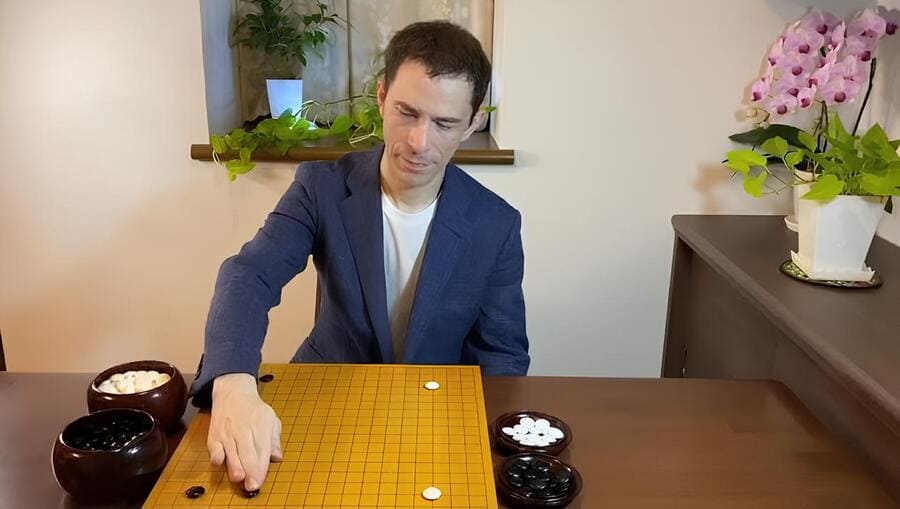
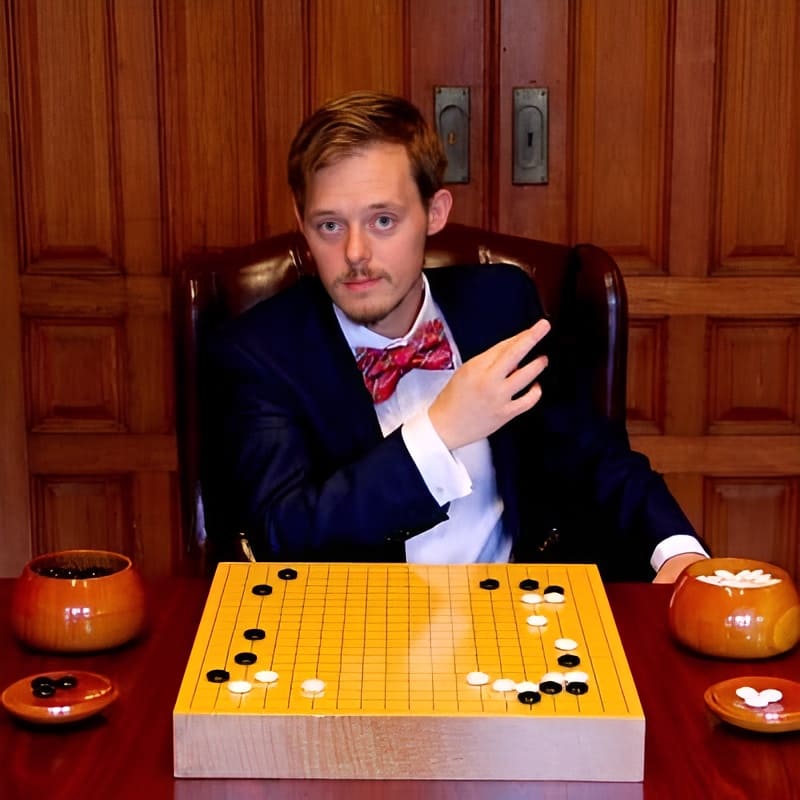
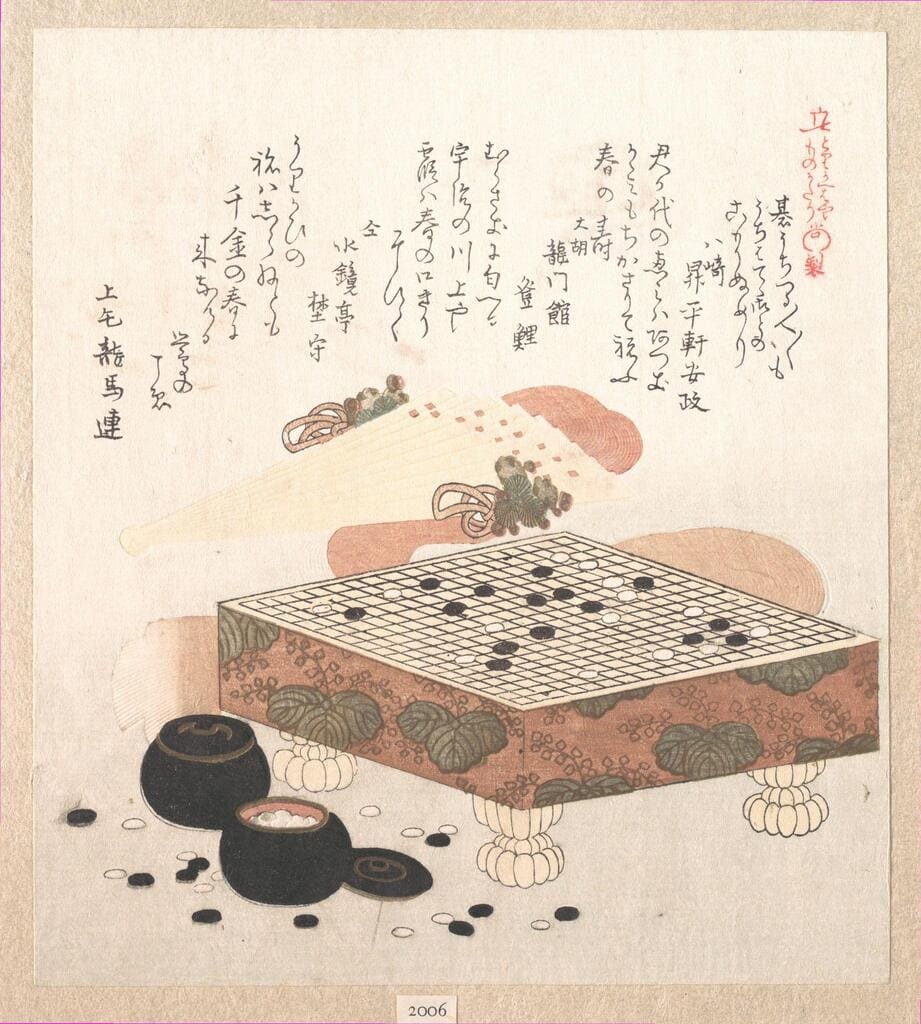
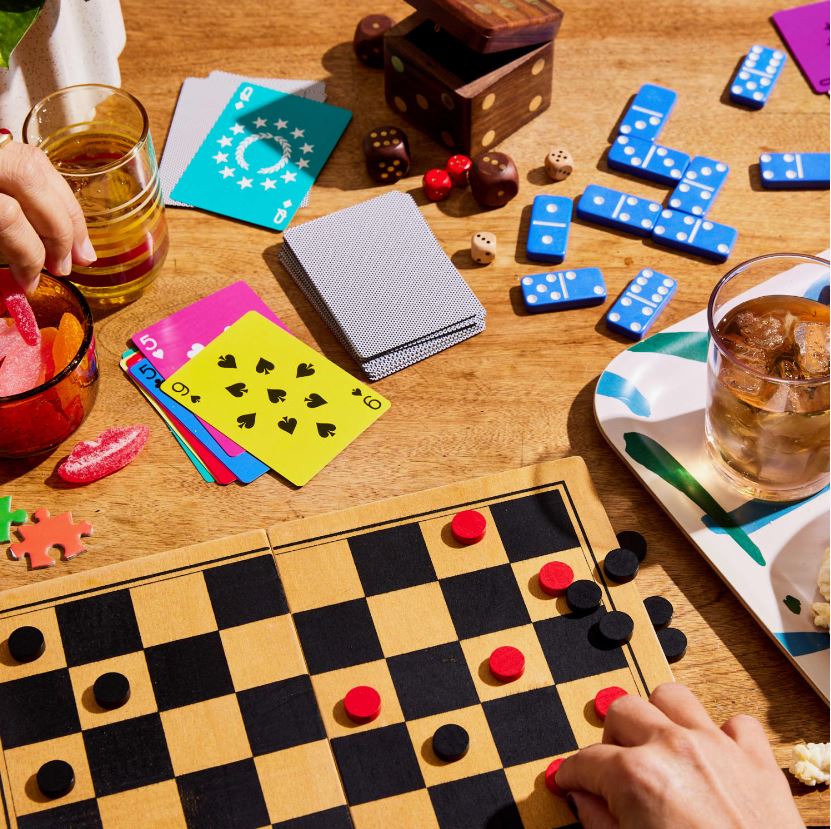
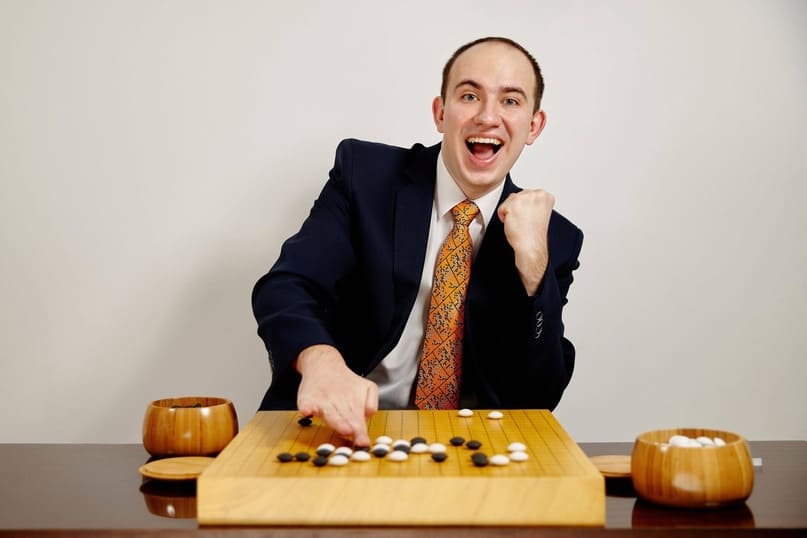
It is really an interesting and meaningful article. Can I translate it into Chinese and send it to bilibili.com (the youtube of young Chinese netizens)? If any amount of income is generated, I can pay for this website in full if you wish.
In addition, look forward to a Russian world Go champion!
Hi Lindsey, sure, you can translate it into Chinese and let the Chinese see it on bilibili. Thank you for your enthusiasm=)